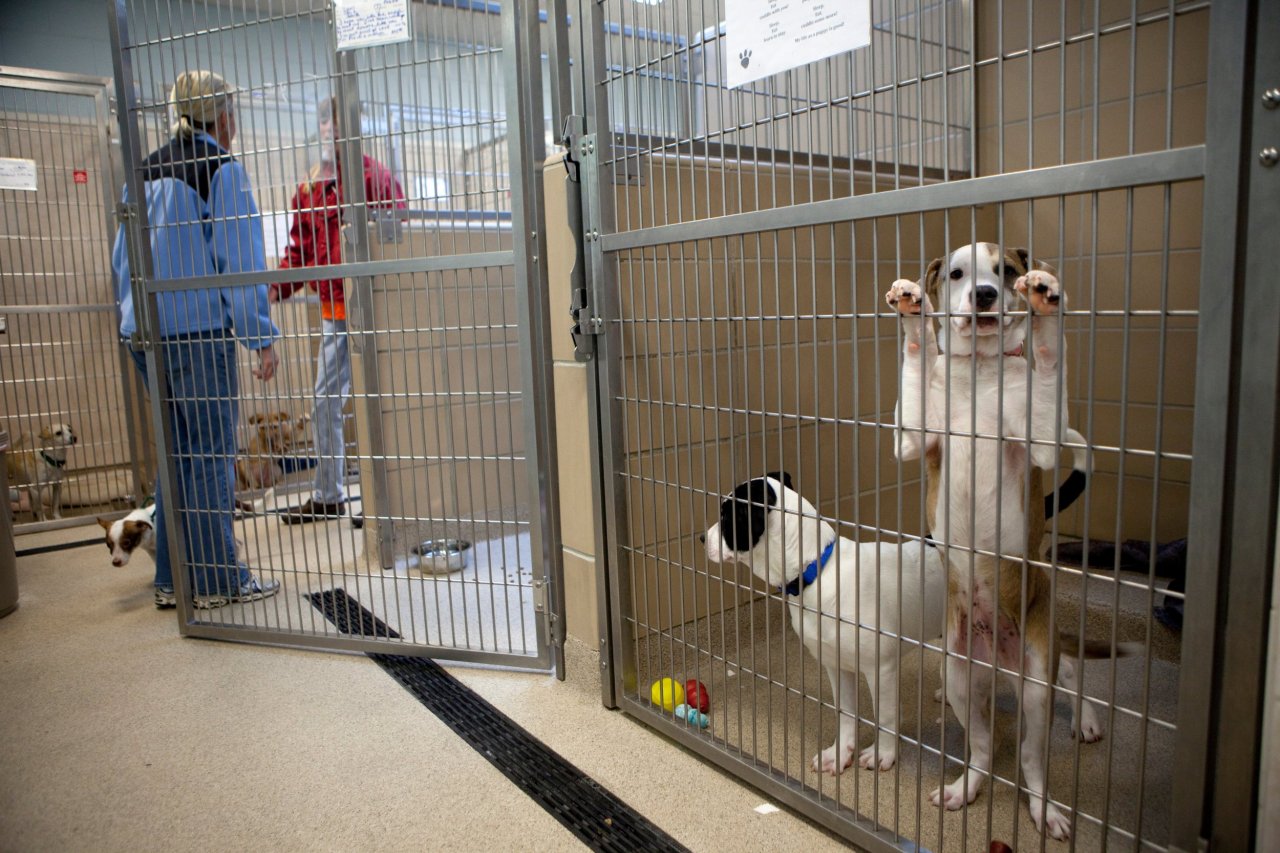Prepare to have your breakfast ruined.
In May 2010, the Office of the Inspector General investigated the arm of the USDA responsible for monitoring the so-called puppy mills that fill all those pet shop windows with adorable, yapping little dogs. The report lays bare explicit details of overcrowded facilities and disease-ridden animals, backed by graphic images of cruelty to dogs. At one puppy mill, inspectors found dogs so hungry they had turned to cannibalism. Dog was eating dog.
Repulsed by such abuse, increasing numbers of American cities are putting a leash on retail dog sales. San Diego is the latest to make it illegal for stores to display, sell, or even give away dogs, cats or rabbits unless the animals are obtained from a shelter, animal control agency, humane society or nonprofit rescue organization.
San Diego is also the second-largest U.S. city to outlaw retail dog sales. It follows Los Angeles; Albuquerque; Austin; Villa Park, Ill., and more than two dozen other cities in doing so. Connecticut lawmakers are considering the first statewide ban on the practice. It's all part of a rapidly growing drive to abolish the high-volume commercial dog breeding that takes place on puppy farms. Animal-rights activists say these operations, which can produce more than 2,000 pups a week, supply the vast majority of dogs to pet shops.
Efforts to ban Main Street dog sales have met with fierce opposition from breeders and pet shop owners alike. "It's absolutely absurd," says David Salinas, owner of San Diego Puppy. "It's the result of an animal rights extremist-type movement. We're not Communist Russia. Americans should have a right to choose where they can shop."
Animal welfare organizations disagree. Groups such as the ASPCA, PETA and the Humane Society of the United States all say that buying puppies from pet shops is morally wrong.
This summer the ASPCA posted on its website 10,000 photographs taken by USDA inspectors at puppy mills — along with locations, USDA license numbers and examples of abuse — in order to name and shame breeders.
Is this animal-rights extremism? Cori Menkin, senior director of ASPCA's Puppy Mills Campaign, says conditions at most commercial dog-breeding facilities are "inhumane," and that it's not just a case of a few bad apples. "We're talking about an industry that, across the board, is extremely cruel."
In May 2010, the Office of the Inspector General carried out an audit of the Animal and Plant Health Inspection Service's Animal Care unit, the arm of the USDA responsible for applying the Animal Welfare Act. The report found "major deficiencies" in the unit's enforcement procedures, including overlooking blatant violations and "lenient practices against repeat violators."
San Diego Puppy's Salinas, who also runs a pet shop in Oceanside, Calif., admits that irresponsible breeders are a problem but says he does not do business with them.
Public opinion on the issue appears to be changing rapidly. Companion Animal Protection Society (CAPS) claims credit for ushering in the current movement to improve the lives of dogs bred for sale. Founded in 1992, the nonprofit was set up solely to investigate pet shops and the dog-breeding industry. Founder and president Deborah Howard says the city of West Hollywood passed a pet-shop ordinance in February 2010 as a result of a CAPS investigation. "We had international publicity on it because it's West Hollywood," she said. "That's what opened the floodgates."
Other municipalities followed, many in Southern California, where CAPS worked with officials in Glendale, Irvine and elsewhere to adopt similar ordinances; a CAPS investigation delivered to the city's Public Safety Committee in March was cited as the reason San Diego passed its ban. When the ordinance went through, the city had only two pet shops that still sold puppies. By contrast, Los Angeles had more than 30 when its law went into effect.
"We don't just go around willy-nilly passing ordinances," says Howard. "We gather evidence first. Not only do we go undercover to pet shops, but we've investigated more than 1,000 puppy mills, most of them USDA licensed."
Even as the roaring trade in specially bred puppies continues, the Humane Society estimates that between 3 million and 4 million dogs and cats are euthanized in America every year. "Taxpayer dollars are going toward keeping animals in shelters and to euthanize animals," Howard says. "So how can we justify all these animals coming out of commercial breeding facilities?"
Is a federal ban on retail pet sales in the cards? Even Howard doesn't see that, if only because the huge commercial breeding industry has a powerful lobby. But don't take that to mean that a pet shop ruling isn't coming to a city near you. "I do think this ordinance movement is going to continue to grow," she says.






















